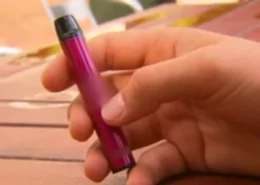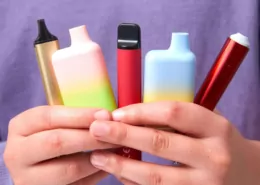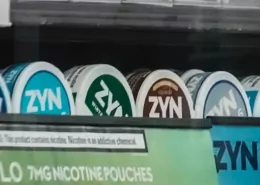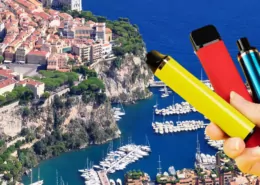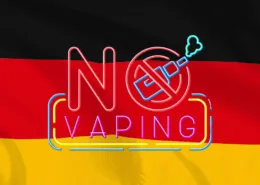Quebec’s Will Ban Flavored Vape Products on Oct. 31, 2013
Quebec will prohibit sales of flavored vaping products, except tobacco flavor, starting October 31st. The province will also limit maximum nicotine concentration in vapes to 20 mg/ml.
In April, Health Minister Christian Dubé first sought to amend regulations under the Tobacco Control Act to deter youth vaping. On Wednesday, Dubé emphasized these rules protect youth from “harmful and worrying effects of vaping.”
“Improving Quebecers’ health will help take preventive action and reduce pressure on our healthcare system,” said Dubé. “It’s our responsibility to make these substances less attractive to everyone.”
Quebec will restrict vape tank and pod capacity to 2 ml and refill bottles to 30 ml. Packaging will require health warnings and usage details. Other aspects that increase youth vaping appeal will be regulated.
Vita Canada, representing the vaping industry, asks for a 6-month extension before enforcing the law. They argue this would prevent financial losses and waste for vape shops with now illegal inventory.
Founding director Daniel Marien warns youth may obtain flavored vapes illegally online using prepaid cards.
“We are outraged and deeply disappointed by the stubbornness to ban vape flavors,” said Marien. “The government is mistakenly relying on wishful thinking to protect youth from vaping.”
Eric Gagnon of Imperial Tobacco Canada believes severe penalties for supplying vapes to minors would be more effective than flavor restrictions.
“Too many young people are vaping, but extreme flavor restrictions won’t solve this. It needs proper enforcement,” said Gagnon.
Additional Regulations
Beyond the flavor and nicotine limits, Quebec will impose further regulations:
- 2 ml tank/pod capacity
- 30 ml max bottle size
- Health warnings on packaging
- Plain packaging requirements
- Prohibitions on marketing targeting youth
Officials hope these measures will reduce the appeal of vaping among teens and young adults.
Controversy Around
Quebec’s vaping crackdown aims to prevent nicotine addiction among youth. But the flavor ban remains controversial regarding harm reduction for adult smokers versus deterring youth uptake.
Harm Reduction Advocates Oppose Flavor Ban
Harm reduction advocates argue flavored vapes help adult smokers quit cigarettes. With only tobacco flavor available, they say vaping becomes less satisfying, and smokers may relapse or turn to the black market. The flavor ban could thus undermine vaping’s harm reduction potential.
Concerns About Black Market Risks
Banning legal retail flavors may drive former adult vapers and youth to unregulated black market sources, where safety standards are unclear. Illegal online sales using discreet payment methods remain accessible.
Penalties For Underage Sales Advocated
Instead of a blanket flavor ban, some groups recommend focusing enforcement on retailers illegally selling to minors. Imposing severe fines or license revocation for underage sales could curb youth access without limiting adult smoker options.
Potential Relapse to Smoking
Adult ex-smokers often say flavors help them stick with vaping and avoid returning to cigarettes. With only tobacco flavor available legally, quit rates could suffer if vaping becomes less satisfying.
Tobacco Industry Response
Imperial Tobacco Canada remains opposed to Quebec’s regulations, arguing the government is acting on emotion rather than science. They state:
- Flavor ban won’t stop illegal youth access but hurts adult smokers
- Vaping is less harmful than smoking according to Health Canada
- Balanced regulation should allow flavors while preventing underage sales
- Adults will be driven to black market with no quality control
“The government succumbed to pressure from anti-tobacco groups, leaving adult consumers with no choice but illegal or dangerous options,” said Eric Gagnon of Imperial Tobacco.
Ongoing Debate
The clash between preventing youth vaping and maintaining vaping’s harm reduction potential for adult smokers continues across Canada. More research on long-term impacts is needed to guide evidence-based policy.
For now, Quebec is staking out a hard line to curb underage use, even if it generates backlash from harm reduction advocates. The full public health effects remain to be seen.
- UK Wolverhampton Extends “Swap to Stop” Vape Program - July 4, 2025
- Pakistan Halts Vape Crackdown Pending Legislation - July 4, 2025
- Wisconsin New Law Banning Sale of Most Vape Products - July 4, 2025


